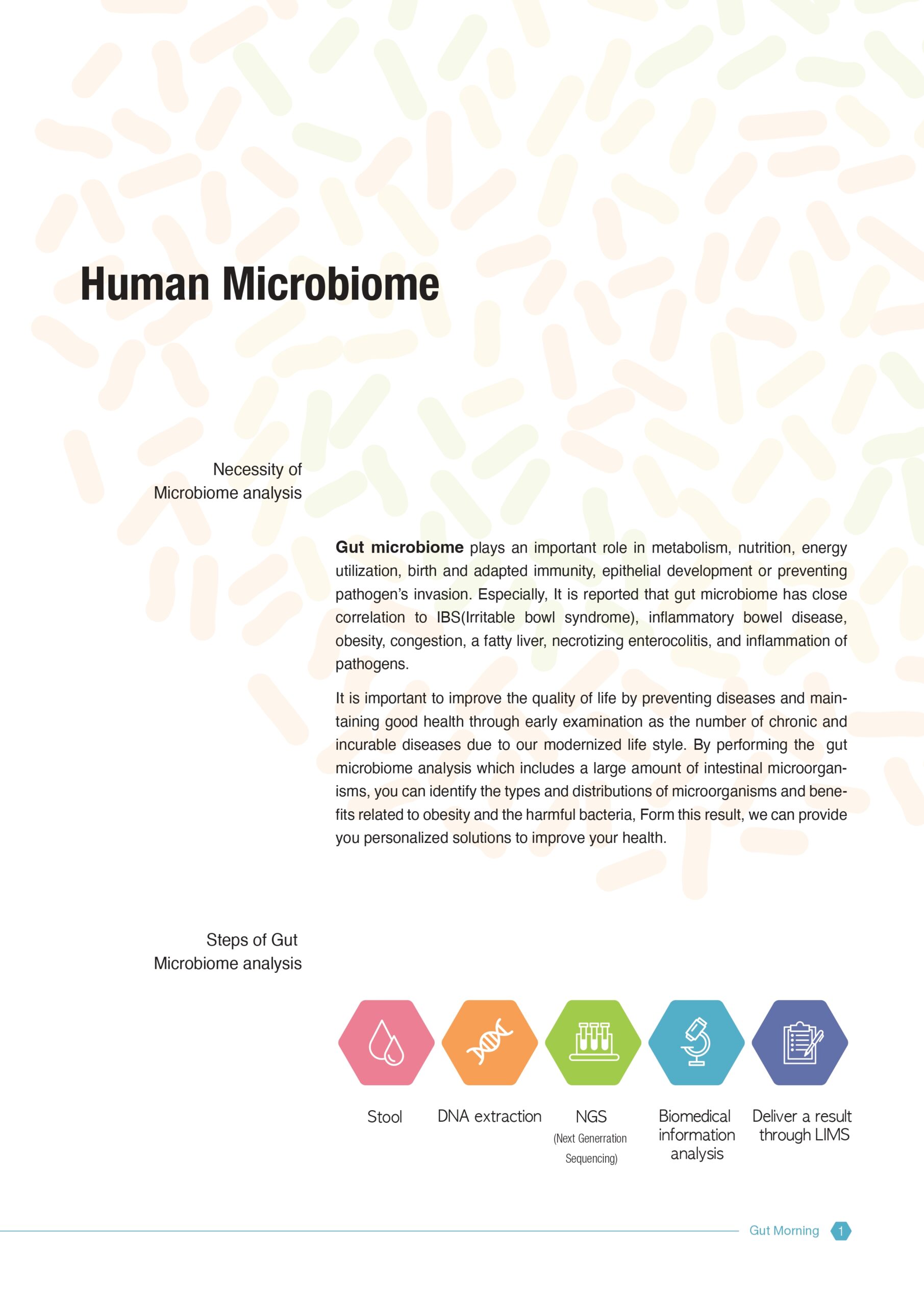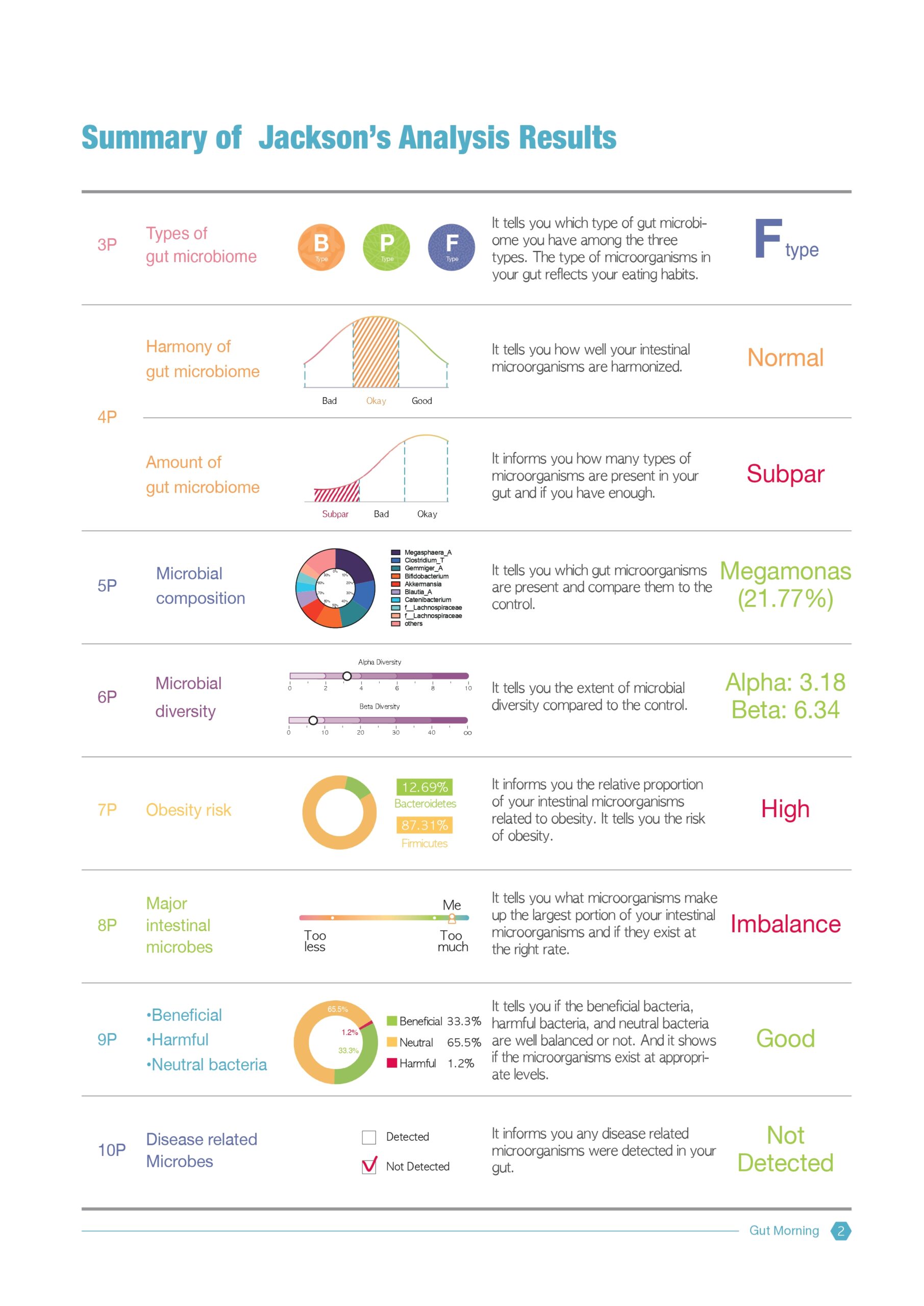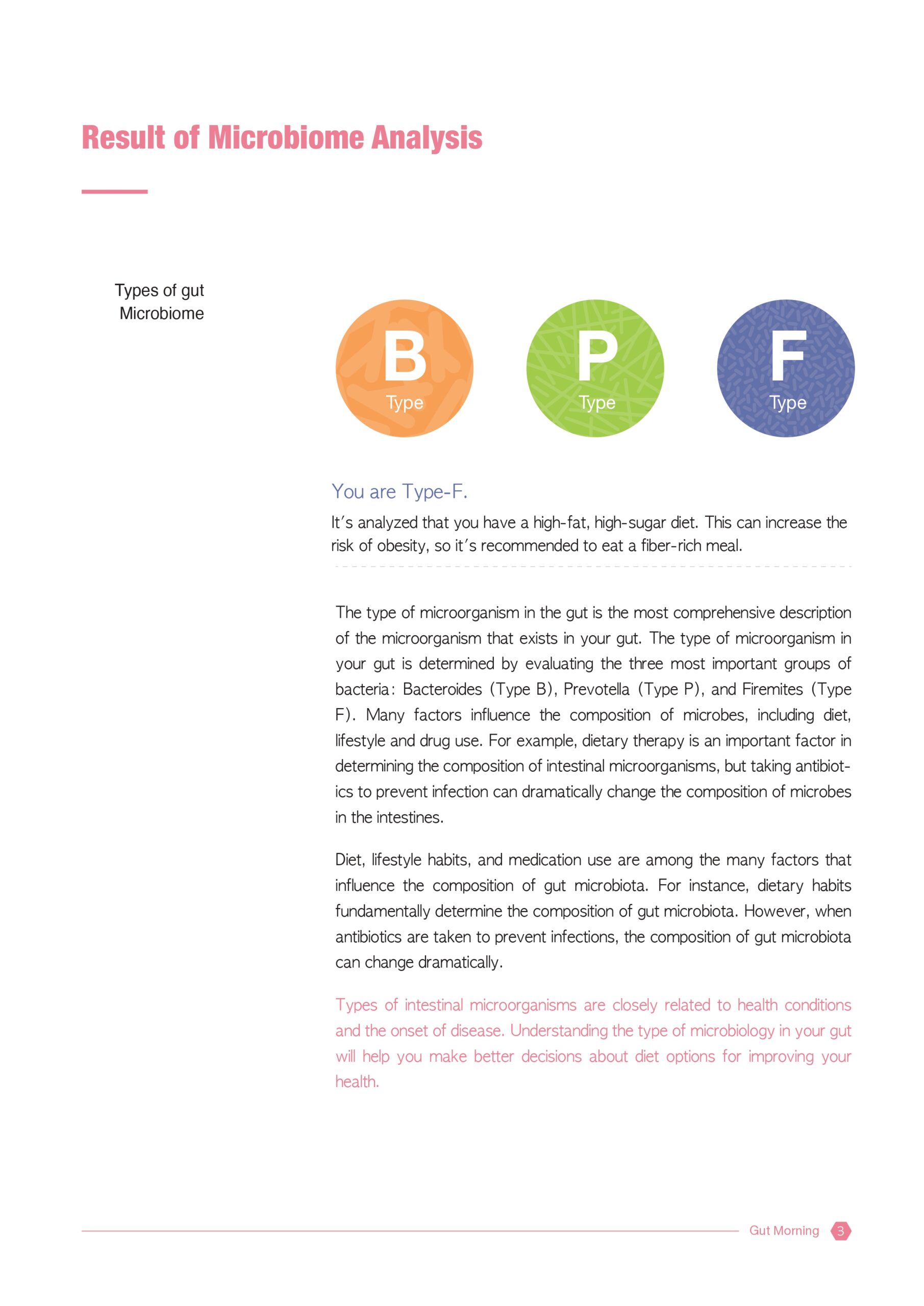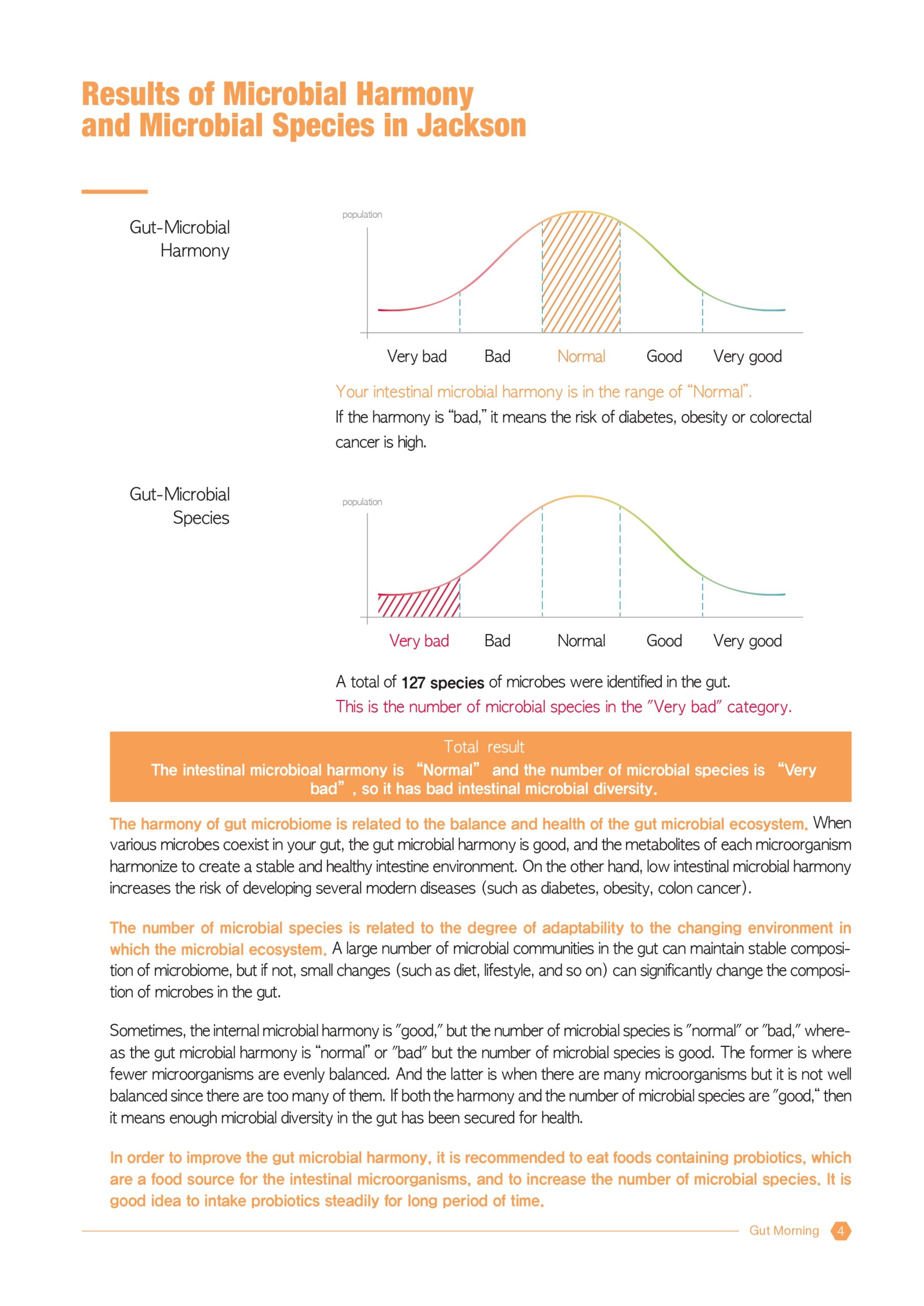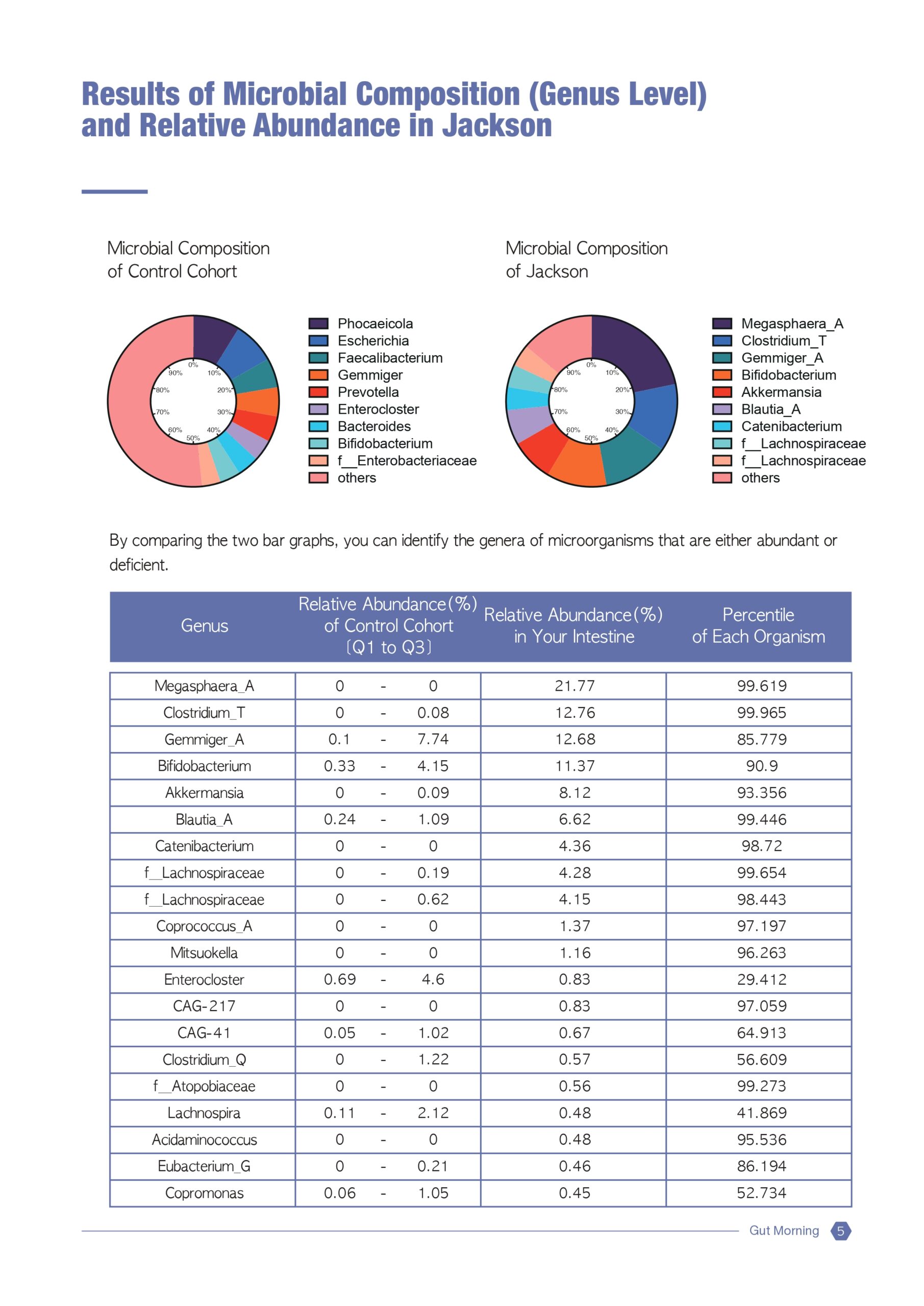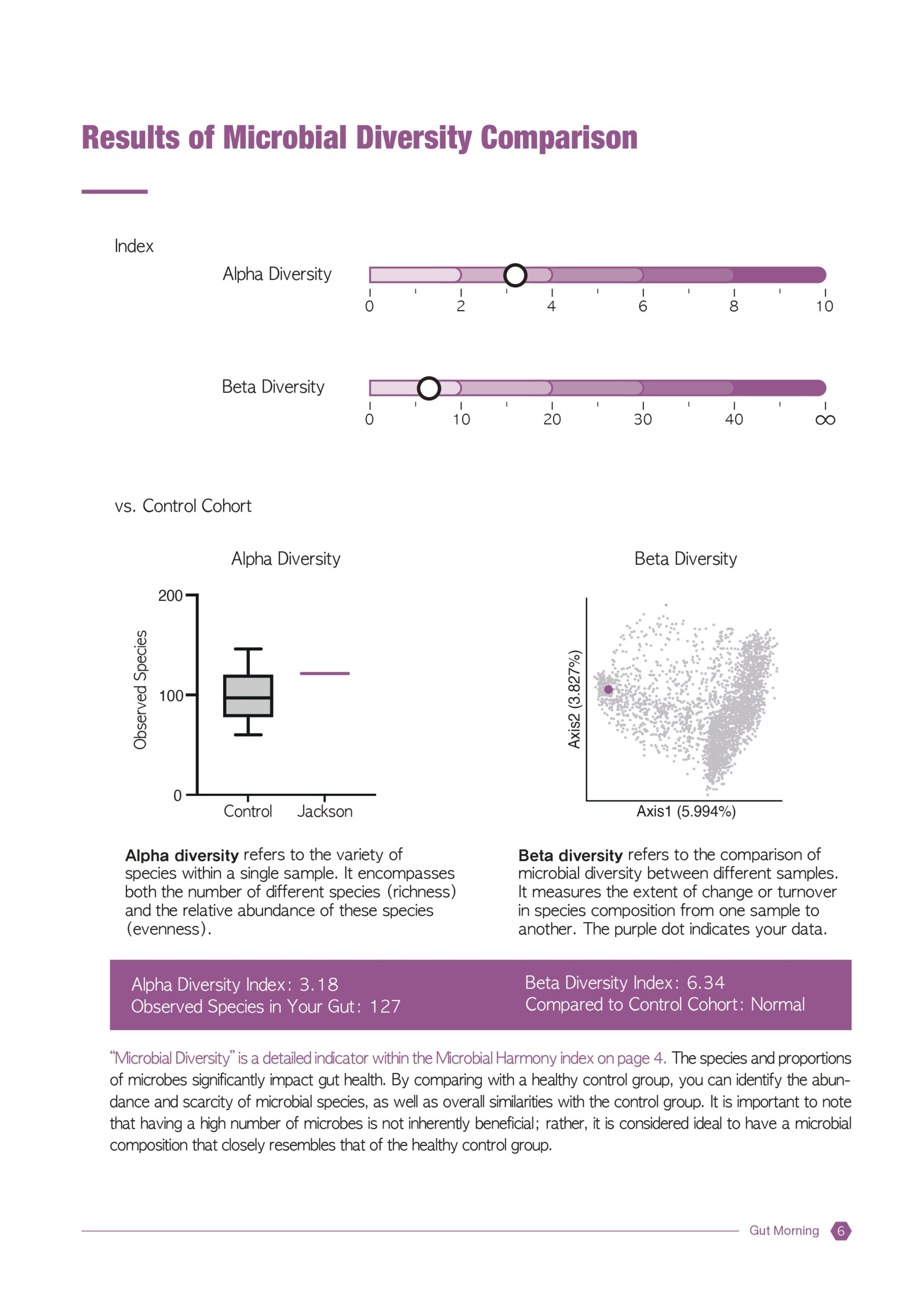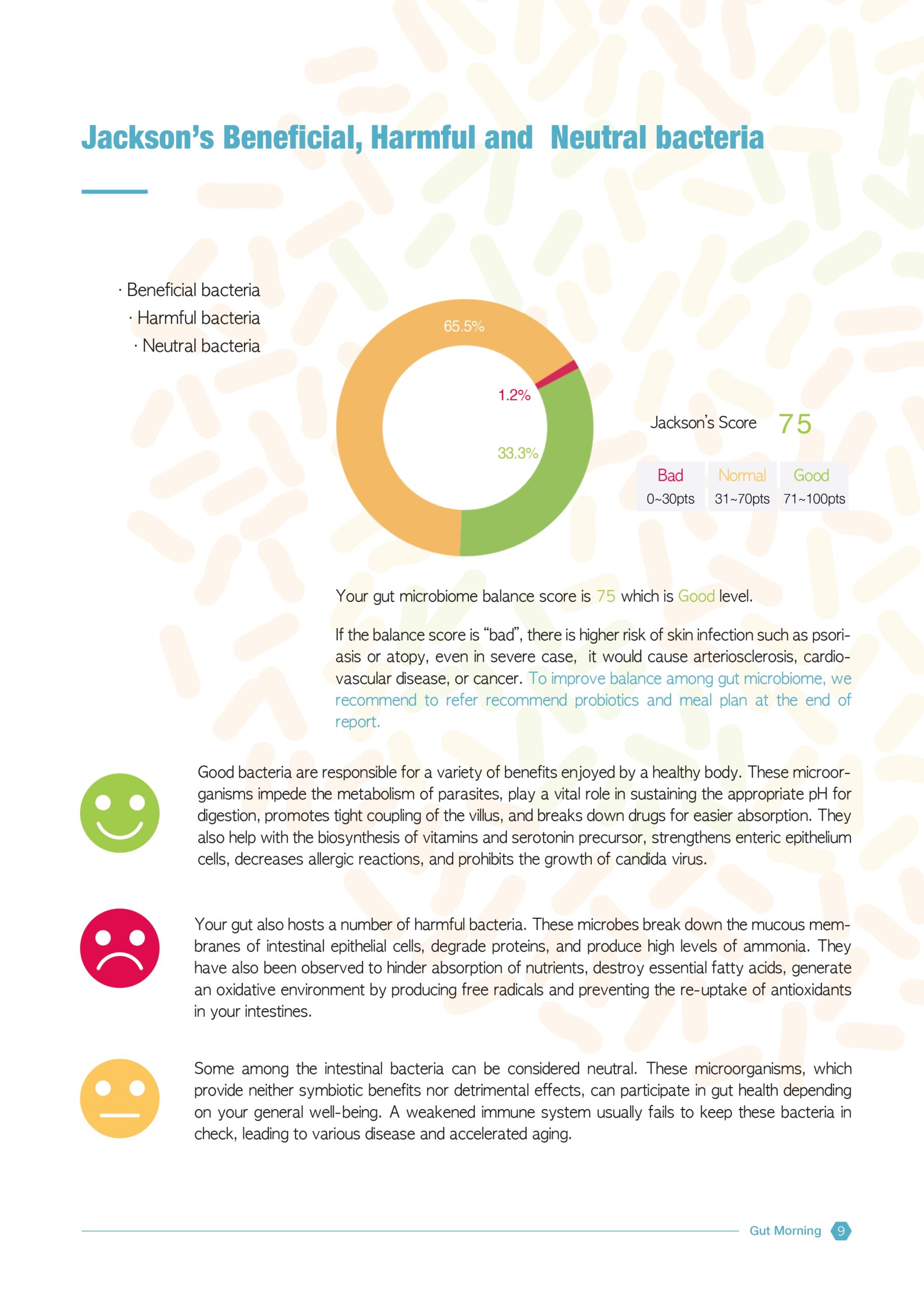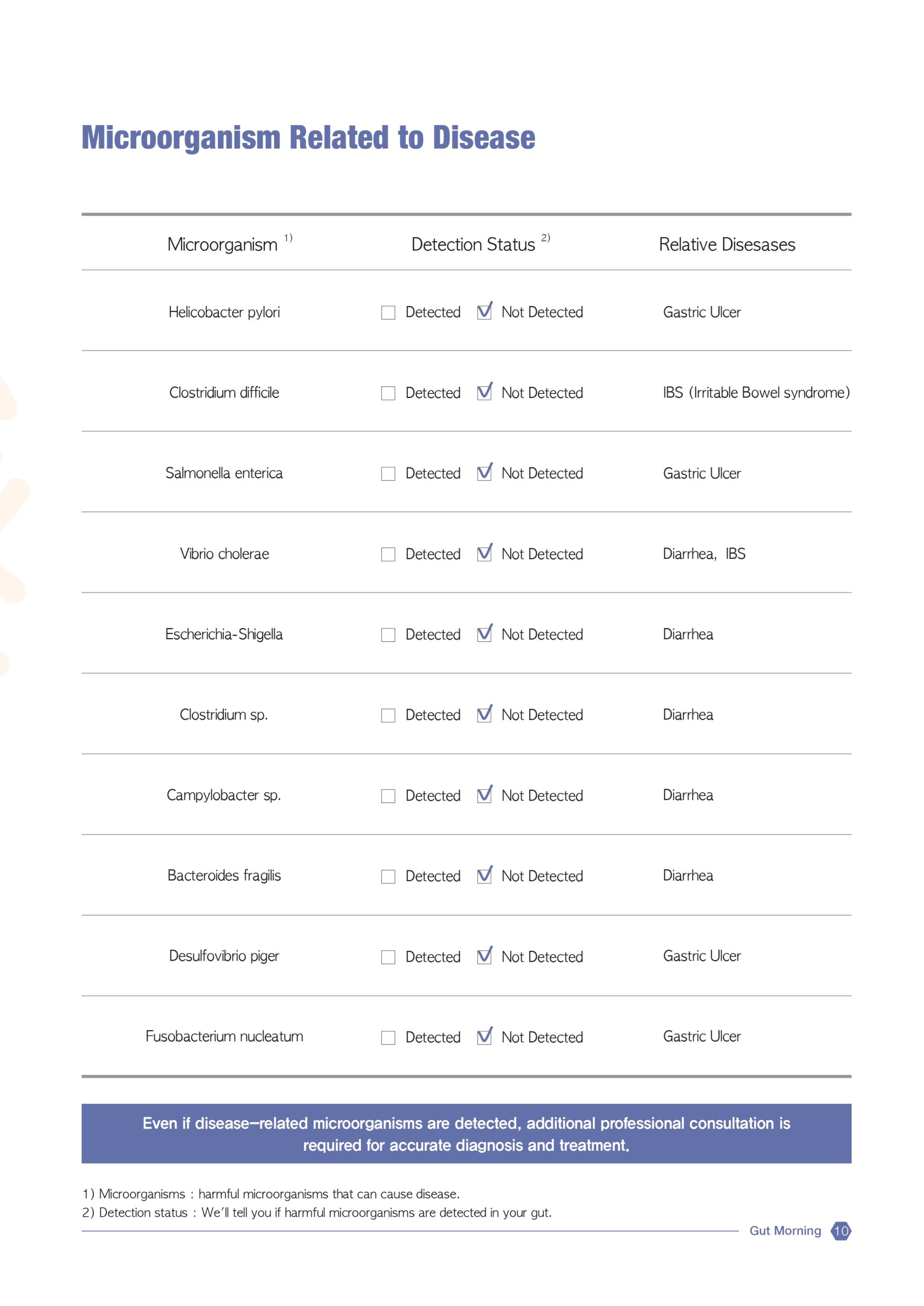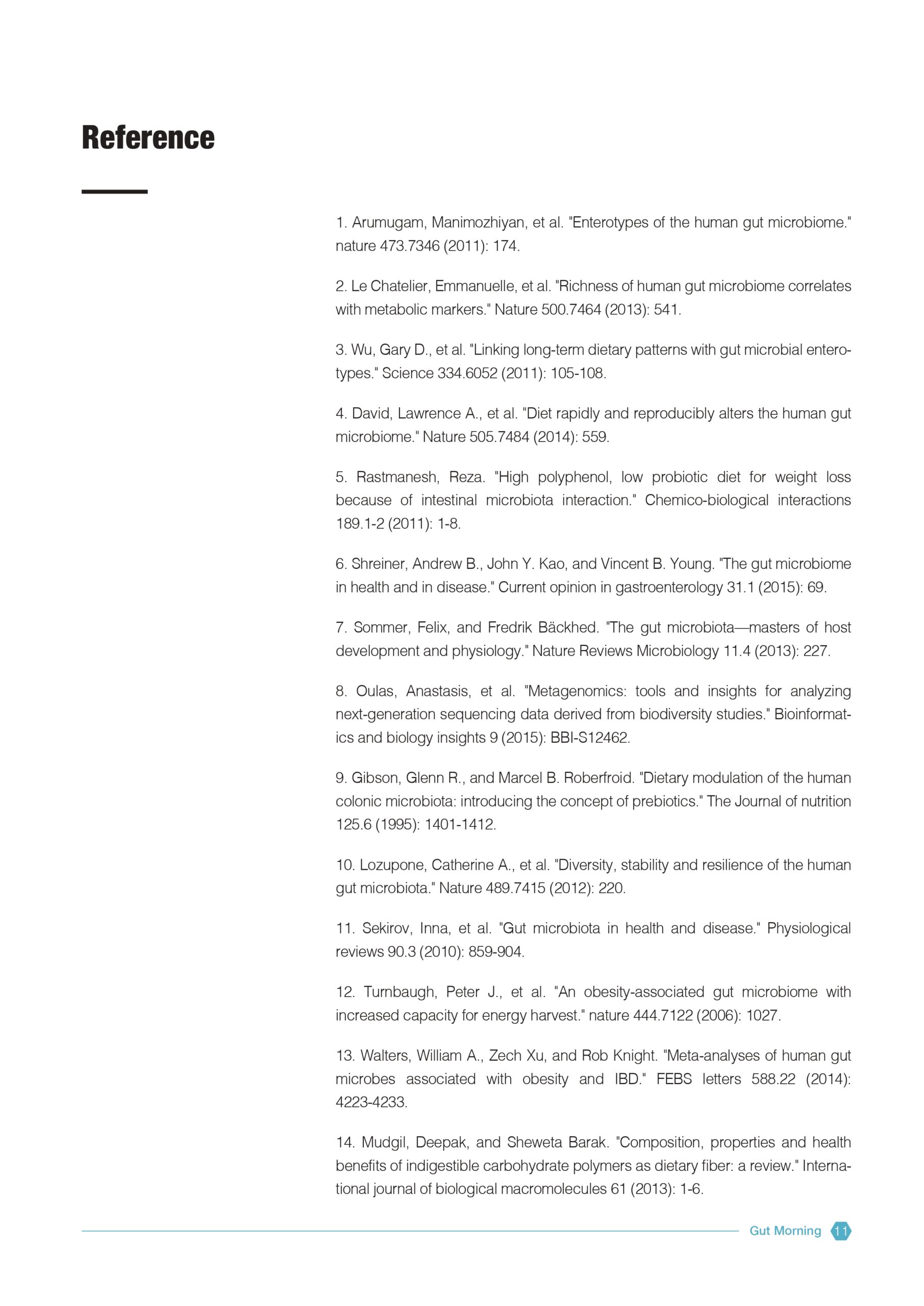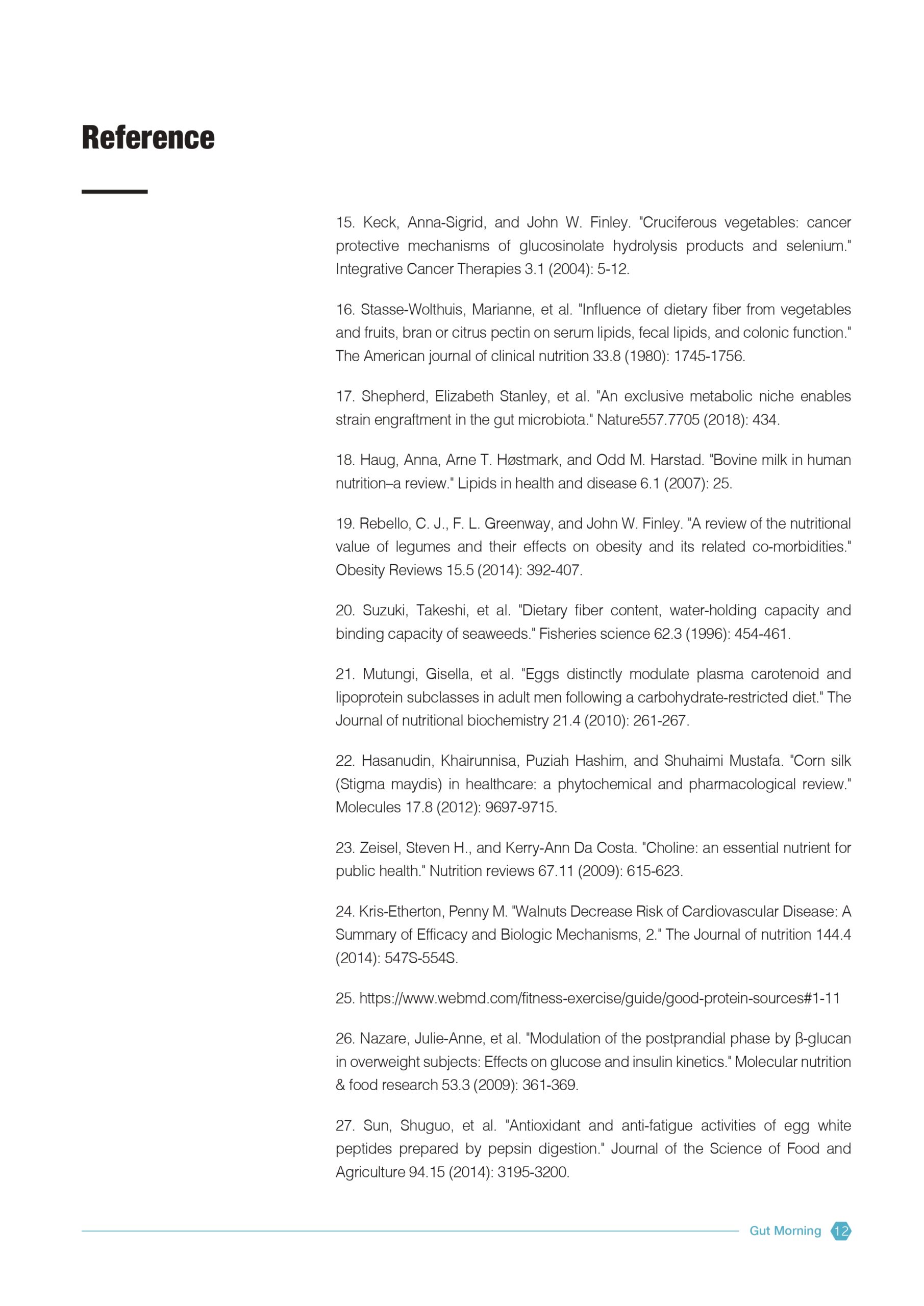
At GDX LAB, we use a stool sample to perform a comprehensive gut microbiome test. This test examines the gut flora in your stool, identifying different kinds of bacteria in your gastrointestinal tract. Our microbiome test provides valuable insights into the composition of your gut microbiota, helping you understand how these microbes might be affecting your health. While this test is not intended for diagnosis, it can guide you towards better dietary choices and overall gut health. If you have concerns about the health of your GI tract, it is important to consult with a healthcare provider. Get a gut microbiome test at GDX LAB to learn more about your gut health and take proactive steps for improvement.
GDX Application
 Learn more and Order now
Learn more and Order now
Gut Morning Microbiome test analyzes microorganisms in the gastrointestinal tract, providing insights into their diversity, abundance, and function. This information helps understand digestion, nutrient absorption, immune function, and overall health. The test is beneficial for individuals with gastrointestinal symptoms like bloating, diarrhea, or abdominal pain, and chronic conditions such as IBS or IBD. It identifies microbial imbalances (dysbiosis) that may contribute to these conditions or affect well-being. Results guide personalized dietary recommendations, probiotic or prebiotic supplementation, and lifestyle changes. Researchers also use these tests to explore the gut microbiome’s role in diseases like obesity, diabetes, autoimmune disorders, and mental health conditions, advancing personalized medicine and improving disease prevention strategies. GDX LAB provides fast and accurate results using the 16S method.
Analysis methods
Next-Generation Sequencing
(NGS)
Availability
4 weeks
Why is the Gut Microbiome Important?
Key Points:
- Link with Chronic Diseases: The gut microbiome is associated with conditions such as diabetes and heart diseases.
- Weight Management: A healthy gut microbiome can help sustain weight loss.
- Mental Health: There is a connection between the gut microbiome and mental health issues like depression and anxiety.
- Intestinal Disorders: The gut microbiota is linked to intestinal disorders like Inflammatory Bowel Disease (IBD) and ulcers.
Rebalancing the Gut Microbiome:
The good news is that the gut microbiome can be rebalanced through dietary changes and supplements. By profiling your gut microbiome, you can receive actionable food and supplement recommendations to improve your health.
Benefits of the Gut Morning Microbiome Analysis (Microbiome Stool Test):
- -Understanding Gut Dysbiosis and Disease Susceptibility: The test helps in identifying the extent of gut dysbiosis and susceptibility to diseases.
- Disease Susceptibility Estimation: It qualitatively estimates your susceptibility to 15 different diseases.
- Role in Lifestyle Diseases: Your gut microbiome plays a significant role in the progression of lifestyle diseases.
- Personalized Recommendations: The test provides personalized recommendations for nutrition and lifestyle modifications.
- Probiotic-Based Supplement Advice: It offers recommendations for probiotic-based supplements to restore and maintain a healthy gut microbiome.
FAQ
1) What is a Microbiome?
According to Webster, a microbiome is “a community of microorganisms (such as bacteria, fungi, and viruses) that inhabit a particular environment and especially the collection of microorganisms living in or on the human body.” The human body hosts around 100 trillion microorganisms. These cells and their genetic makeup form stable associations that influence both our body and mind.
2) What is the Gut Microbiome?
The gut microbiome is the complex community of microorganisms residing in the gastrointestinal tract. These microorganisms outnumber our own cells and genes. They play a crucial role in the development and function of the human immune system and help maintain intestinal homeostasis.
3) What is Gut Health?
Gut health refers to the condition of the gastrointestinal tract (from mouth to rectum). It encompasses various functions, including:
- Immunological: Supporting the immune system
- Gastrointestinal: Aiding digestion
- Hormonal: Regulating hormones
- Neurological: Influencing cognitive functions
Maintaining gut health is vital as it impacts overall well-being.
4) What Factors Affect the Gut Microbiome?
The gut microbiome can be disrupted by:
- Poor diet (nutrient-poor or processed foods)
- Medications
- Age
- Exposure to harmful microbes
- Tobacco and alcohol consumption
- Physiological stress and anxiety
5) What is a Gut Microbiome Test?
A gut microbiome test is a home-based test that measures the type and amount of microorganisms in the gut. The sample used for testing is stool, which provides information about the status of the gut microbiome.
6) What Information Does a Gut Microbiome Test Provide?
A gut microbiome test measures the type and amount of microorganisms present in the gut, including:
- Gut Microbiome Index
- Disease Risk Index
- Pathogen Characterization
- Nutritional Recommendations
- Probiotic Recommendations
- Prebiotic Recommendations
7) Who Needs Gut Microbiome Testing?
Anyone experiencing conditions that disrupt the balance of microorganisms in the gut may benefit from microbial analysis. Common conditions include:
- Gastroesophageal Reflux Disease
- Mood disorders
- Obesity
- Skin disorders
- Oral health problems
- Diabetes
- Liver diseases
- Inflammation
- Cardiovascular diseases
- Autoimmune conditions
Hormonal imbalance
8) Why is Gut Microbiome Testing Important for Everyone?
Gut microbiome testing provides valuable insights into the biodiversity of your gut and its impact on overall health. Based on the results, you can receive tailored advice on lifestyle and dietary modifications.
9) How Does FMD Perform Gut Microbiome Testing?
- Purchase the test on our website.
- Receive the kit with instructions.
- Collect your sample.
- Ship the kit to the lab.
- Sample analysis is conducted at the lab.
- Access your results online.
10) Can a Simple Blood Test Evaluate the Gut Microbiome?
No, a simple blood test cannot evaluate the gut microbiome.
11) Do I Need to Fast for a Gut Microbiome Test?
No, fasting is not required. The first bowel movement of the day is preferred for sample collection.
12) How to Improve Your Gut Health?
Although everyone has a unique microbiome, key factors for good gut health include:
- Maintaining healthy, rainbow-colored diet rich in prebiotics
- Avoiding processed foods and smoking
- Taking antibiotics only when absolutely necessary
- Minimizing stress and ensuring good quality sleep
Sample Collection Process and Shipping Information
· Sample Collection
· Shipping Information
1. Record your kit number and shipping number for tracking your test result.
2. Remove the protective seal on the yellow sticker underneath the front side of the kit. Make sure the kit is sealed well and mail it out to the designated laboratory (770 W Hampden Ave, Englewood, CO 80110 Phone: (720) 255-2280 ) for analysis.
3. Do not ship samples to arrive on Saturday or Sunday, the laboratory is closed. Contact the GDX Lab concerning holiday shipping/receiving schedules.
4. Track your sample number through the USPS tracking site.
Gut Morning Microbiome Test Request Form
Information Release Form for Authorization Download






